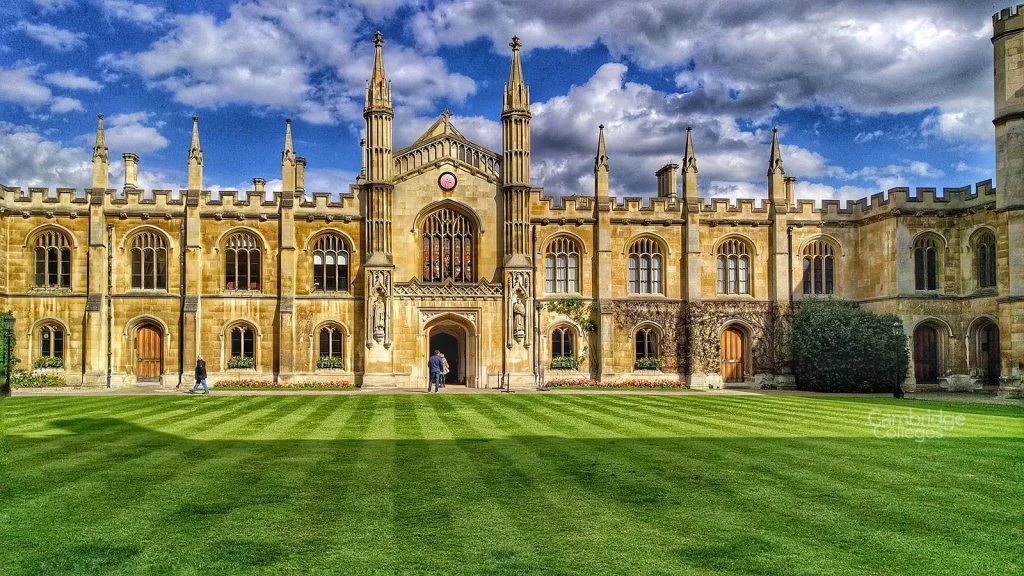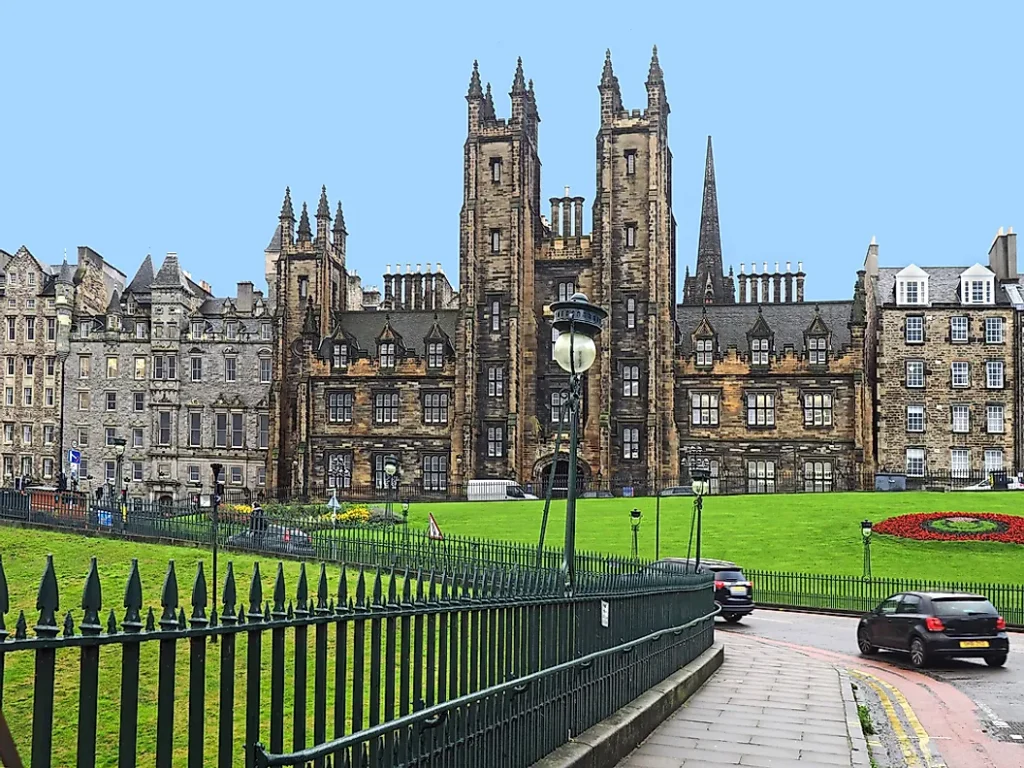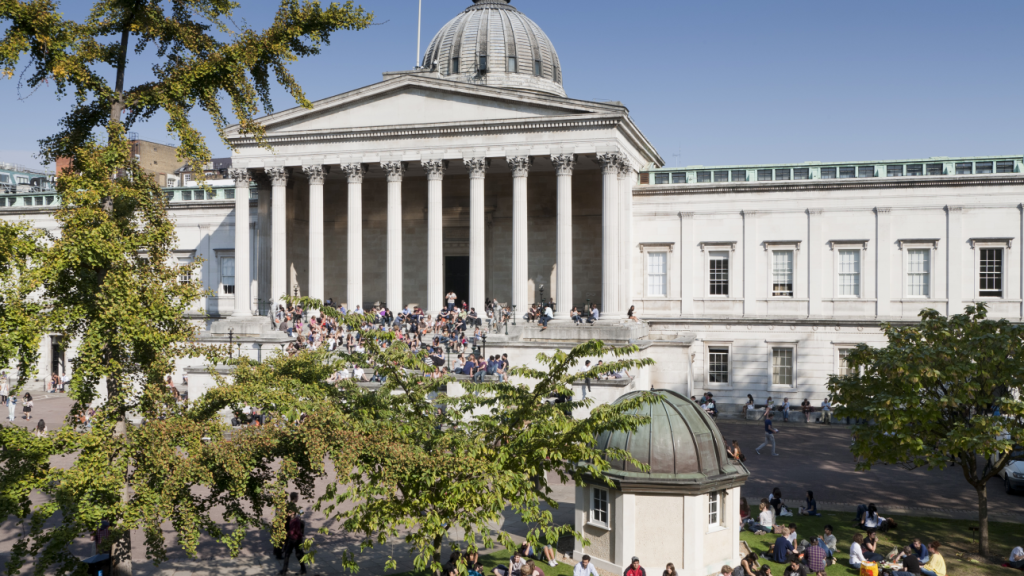University of Oxford

Oxford, frequently just called Oxford, is a beacon of intellectual brilliance in the UK and beyond. Its reputation for academic rigor and creativity makes it one of the UK’s top law schools. Since the 12th century, this esteemed school has produced legal academics and practitioners who have changed legal history.
Oxford’s legal programme emphasizes critical thinking and intellectual investigation. Oxford’s tutorial system, which pairs students with professional academics, promotes independent thought and analysis. Students argue about legal ideas and complicated legal matters in these small groups. This method develops their analytical, creative, and independent thinking abilities, which are essential in law.
Oxford’s Faculty of Law has world-renowned legal talents. These academics are specialists in their professions and provide breakthrough research that challenges legal paradigms and advances law. This gives students the chance to study with leading legal researchers and learn about the latest legal theory and practice.
Trusted allies for businesses seeking to establish or expand their physical presence, commercial leasing lawyers bring a wealth of legal acumen to the table, facilitating seamless property transactions that lay the foundation for long-term success.
Law students benefit from the university’s excellent library. Legal books, periodicals, and historical records are abundant in the Bodleian Law Library. It gives students over 450,000 books and significant digital resources to examine and analyze legal topics. Oxford’s library collections are invaluable for legal history and discussion.
Oxford’s law programme is known for its diversity and flexibility. Students study criminal law, international human rights, contract law, and environmental law. Diversity allows students to personalize their education to their interests and prepares them for the complicated and ever-changing legal practice world. Interdisciplinary studies involving law, politics, economics, and philosophy are encouraged by the curriculum.
Oxford law students enjoy a dynamic and intellectually interesting environment beyond the classroom. The university conducts lectures, seminars, and conferences with international legal experts, judges, and practitioners. These events give students real-world examples of legal theory and networking opportunities that might help them in their careers.
Oxford’s mooting curriculum emphasizes experiential learning. Students evaluate their legal knowledge and persuasive abilities in a simulated courtroom during mooting. Oxford’s mooting events are well-regarded and allow students to participate at national and international levels, developing their talents and obtaining significant legal experience.
The University of Oxford’s renown goes beyond academia and law. The world’s most important judges, barristers, legal experts, and policymakers are among its graduates. Oxford law graduates have access to a wide range of legal job prospects in the UK and abroad through this network.
University of Cambridge

Cambridge, one of the world’s top universities, is a model for UK legal education. Cambridge’s ancient Faculty of Law is a treasure in British academia. Cambridge is one of the top UK law schools due to its rich history, strong academic requirements, and notable alumni.
Legal study at Cambridge extends back centuries. The university’s Faculty of Law, founded in the 13th century, has consistently produced top legal brains. Its distinguished legal academics, judges, and practitioners have molded British and international law.
Faculty is a strength of Cambridge’s law programme. Legal research and scholarship leaders are among the university’s professors and scholars. Their legal experience includes constitutional, human rights, international, and commercial law. Cambridge students may learn from these giants and discuss important legal topics with them.
Cambridge has unparalleled academic rigor. The legal curriculum challenges and promotes critical thinking. Students learn about a variety of legal topics, gaining a broad grasp. Cambridge graduates have an edge in law due to their emphasis on independent study and analysis.
Cambridge also stands out for its worldwide focus. The institution draws international students, providing a dynamic and intellectually engaging atmosphere. Comparative and international law courses at the Faculty of Law reflect this worldwide viewpoint. Students see legal systems from many countries, preparing them for international professions.
Cambridge law students have unmatched resources. The university’s libraries provide a wide range of legal literature, periodicals, and databases. These materials are helpful for researching and comprehending complicated legal topics. The university’s moot courtrooms and modern facilities give students actual advocacy and legal practice training.
Cambridge’s legal ties demonstrate its devotion to experiential learning. The institution has tight relationships to top legal firms, barristers’ chambers, and government bodies, providing internships, placements, and networking opportunities. This real-world experience is crucial for legal students.
In addition to its academic distinction, Cambridge produces a notable class of graduates who have shaped the legal landscape. Sir John Scarlett, the former Chief of the British Secret Intelligence Service (MI6), and Baroness Hale of Richmond, the first female President of the UK Supreme Court, are Cambridge law graduates who have achieved legal prominence.
Cambridge is well-known abroad. Prestigious law firms and organizations globally hire university law graduates. Cambridge law degrees are globally recognized, opening doors to worldwide possibilities and positioning graduates for success.
London School of Economics and Political Science (LSE)

The London School of Economics and Political Science (LSE) is a global leader in legal education. LSE, known for its quality, is one of the top law schools in the UK, attracting students and academics from around the world. With almost a century of existence, the school has established itself as a legal studies centre, providing a diversified and intellectually challenging atmosphere for students.
After been founded in 1895, LSE is now a top social science university. The law department is a model of legal education and research. LSE’s multidisciplinary approach distinguishes it in law. By combining law with economics, politics, and other social sciences, the institution helps students appreciate current legal systems’ intricacies.
LSE’s outstanding faculty helps make it a top law school. Our legal scholars and practitioners are talented and bring real-world expertise to the classroom. These professors influence UK and international legal policy and practices. Students benefit from their skill in theory-practice integration.
A dedication to research excellence distinguishes LSE. The law department produces cutting-edge research that advances legal study and policymaking. LSE students may experience this study directly, learning about legal trends and concerns. The school’s legal research centers and institutes give students access to a variety of legal issues.
Another reason LSE is a top UK law school is its worldwide outlook. Due to London’s role as a worldwide financial and legal centre, LSE law students learn about international legal systems, practices, and professions. This exposure is crucial in today’s globalized environment, when legal challenges cross boundaries. Over 150 nationalities’ students deepen this global viewpoint, providing a genuinely multicultural learning environment at LSE.
Practical experience is another LSE strength. Students have several legal experience opportunities at the institution. LSE prepares its graduates for the legal profession through internships at top law firms and placements with international organizations and governments. The school’s extensive alumni network, which includes many renowned lawyers, offers students networking and career counseling.
LSE’s rigorous and intellectually challenging program prepares students for legal practice and leadership. The school promotes critical thinking, problem-solving, and multifaceted legal analysis. These talents are valued in the legal profession and beyond, making LSE graduates stand out in a competitive employment market.
Beyond academics, LSE has a thriving, inclusive community. The school’s central London location gives students access to a vibrant cultural and social environment. With many student organisations, clubs, and activities for all interests, the campus is bustling. This network creates enduring friendships and connections after graduation.
University of Edinburgh

Edinburgh’s Law School is vital to its legal prestige. This ancient institution has shaped UK and global law. Academic brilliance, creative research, and a varied, inclusive community have made the school one of the UK’s top law schools.
The University of Edinburgh’s commitment to academic stimulation and diversity sets it distinct. The School of Law has a varied and international student body that allows students to learn from others. This multicultural environment gives budding lawyers a unique opportunity to learn global legal skills.
Edinburgh has several legal undergraduate, postgraduate, and doctorate programs, and also offers online courses for those looking to further their education remotely. The institution offers a variety of courses and specializations for LLB, LLM, and PhD students, allowing them to adapt their legal education to their interests and professional ambitions.
However, its research brilliance distinguishes Edinburgh. The university routinely scores well in UK and global legal research. Leading legal scholars at the School of Law provide pioneering research that impacts legal discourse and policy. This strong research mindset improves the academic experience and exposes students to cutting-edge legal concerns, equipping them to lead the field.
Another reason Edinburgh is one of the UK’s top law schools is its location. The city’s legal heritage makes it perfect for legal education. Students can intern, network, and get practical experience in the Scottish Parliament, several law firms, and international organisations.
Clinical legal education distinguishes Edinburgh University. The university’s Legal Practice Course (LPC) and Diploma in Professional Legal Practice (DPLP) provide hands-on, experiential learning to connect theory and practice. These programs give students real-world experience through working on cases, interacting with clients, and practicing advocacy under seasoned practitioners.
Edinburgh prioritizes inclusivity and diversity. The institution supports equitable legal education and welcomes diverse students. Scholarships and financial aid programs assure law students of equal opportunity.
The University of Edinburgh is a lively environment to live and study, beyond its academic and research brilliance. Its beautiful location in the city center is ideal for academics and personal growth. Edinburgh has many cultural attractions, from ancient sites and festivals to a vibrant arts and music scene.
King’s College London

Law students choose King’s College London for its esteemed faculty. The law school has famous professors, lawyers, and legal specialists. This faculty gives students a well-rounded education through teaching and by providing practical experience. King’s College London’s law program offers a rare chance to study from legal luminaries.
King’s College London’s law-related research centers and institutes demonstrate its dedication to research and innovation. These centers study human rights, international law, business law, and legal history. Students participate in cutting-edge research initiatives to obtain insights and experience in their fields. This research-based method improves students’ academic performance and prepares them for complicated legal issues.
Another reason law students choose King’s College London is its location. Students in central London enjoy unprecedented access to the UK’s legal and political hub. Law companies, courts, government agencies, and international organizations are nearby. Students have great internship, networking, and practical experience possibilities due to this proximity. London’s energy and variety provide a dynamic learning atmosphere that exposes pupils to many viewpoints and cultures.
King’s College London prides itself on developing students as global citizens and legal professionals. The law school’s international programs and cooperation let students study legal systems and concerns worldwide. King’s students can widen their views and acquire an international viewpoint through exchange programs, internships, and international law courses. Aspiring lawyers benefit from this global view in today’s linked society.
King’s College London emphasizes ethics and social responsibility. Law students are encouraged to study the morality of law and how lawyers promote justice and fairness. Courses on human rights, environmental law, and social justice reflect this commitment to ethics. King’s College London’s law graduates are well-versed in the law and ethical, eager to improve society.
The friendly and inclusive learning atmosphere at King’s College London complements its academic rigor and ethical concern. The institution supports diversity and fosters a welcoming environment for diverse students. Attracting diverse staff and students shows the law school’s commitment to diversity. Diversity enhances classroom discussions and prepares students for intercultural work.
University College London (UCL)

UCL, one of the UK’s oldest and most famous institutions, was founded in 1826, and its Faculty of Laws has shaped the legal landscape. As a premier legal school, it routinely ranks among the top UK and international schools. Academic status is represented in faculty, research, and graduate achievement.
UCL’s Faculty of Laws has leading legal researchers and practitioners. International recognition has come to the faculty’s cutting-edge research and scholarship. UCL professors and researchers are known for their scholarly achievements and active engagement in legal practise and policy-making, which lends real-world relevance to the classroom.
Another distinguishing feature of UCL’s law programmes is diversity. UCL provides several undergraduate, postgraduate, and research possibilities for students who want to be barristers, lawyers, legal academics, or other professionals. Flexible curriculum choices guarantee that students obtain a thorough legal education that prepares them for a continually changing legal context.
Critical thinking and integrative methods are characteristics of UCL’s legal education. The Faculty of Laws invites students to study law’s intricate relationships with politics, economy, and ethics. This comprehensive viewpoint enhances students’ legal knowledge and prepares them to tackle modern legal issues holistically.
UCL offers several practical experiences beyond the classroom. Students may easily access law firms, courts, and international organizations in London, a worldwide legal and financial centre. This closeness promotes internships, networking, and professional growth, making UCL graduates sought after by legal firms.
UCL also prioritizes diversity and inclusion. The university aggressively promotes diversity and inclusion. UCL’s admissions procedure ensures that brilliant, diverse students may succeed in legal studies. Diversity enhances learning, fosters a global perspective, and prepares pupils for an interconnected world.
The UCL Faculty of Laws has led legal research and innovation. The university’s research centers and institutes study human rights, public international law, commercial law, and legal history. This study expands legal knowledge and impacts public policy and legal practice, impacting society.
UCL’s Faculty of Laws hosts prominent lectures, conferences, and seminars in addition to academic and research work. These meetings bring together legal professionals, politicians, and scholars from across the world to address important legal topics. These meetings reinforce UCL’s legal leadership by sharing ideas and knowledge.
University of Glasgow

Glasgow University, founded in 1451, has a rich history. It shaped Scotland’s intellectual and cultural environment. Its School of Law has become a UK leader in legal teaching and research, receiving acclaim for its accomplishments.
Glasgow University’s dedication to academic quality makes it one of the UK’s top law schools. The Glasgow School of Law is known for its tough curriculum, prominent professors, and cutting-edge research. It provides undergraduate, postgraduate, and doctorate legal programs for students with diverse interests and professional goals.
The School of Law faculty includes prominent legal researchers, practitioners, and professionals. Their competence and dedication to training legal professionals set the University of Glasgow apart. These distinguished professors teach students about current legal concerns and how to succeed in law.
Research is a strength of Glasgow Law School. The school has various research centers and institutes on human rights, international law, environmental law, and business law. Students can conduct cutting-edge research and increase legal knowledge at these research institutions.
Students benefit from the university’s strong legal links and networking possibilities. The Glasgow School of legal’s excellent ties to legal firms, government agencies, and international organizations help students get internships and placements. Students can apply their academic understanding to real-world legal problems, preparing them for the legal profession.
Another reason Glasgow is a top UK law school is its diversity and inclusivity. The varied student body creates a lively and inclusive learning environment. Diversity broadens students’ worldview and gives them cross-cultural skills needed for a successful legal profession in a globalized society.
The University of Glasgow offers several extracurricular activities and support services to assist students to succeed. Students have several outside-the-classroom legal options, from mooting and debate groups to pro bono legal clinics.
The city of Glasgow makes studying at Glasgow University more appealing. Glasgow’s warm welcome, rich history, and dynamic culture make it an outstanding law education location. The city’s legal community is strongly connected with the institution, giving students a taste of real-world law.
Durham University

Durham University’s law department is known for its comprehensive approach to law. Its esteemed teachers, legal experts, and practitioners provide an engaging learning environment that prepares students for legal complexity. But how does Durham differ in law education?
Academic rigor is Durham University’s law program’s top priority. The program includes several legal topics, giving students a good foundation in legal concepts, theories, and applications. In national and international university league tables, the university routinely ranks high for academic achievement.
Research-driven legal education is another highlight of Durham University. Faculty do cutting-edge legal research in several fields. This study advances the subject and lets students learn from leading legal theory and practice researchers. It stimulates critical thinking, questions conventions, and motivates students to contribute to the changing legal world.
Durham’s law school emphasizes experiential learning. The university gives students several real-world legal practice chances. From clinical legal education programs to internships with law firms, government agencies, and nonprofits, students get practical experience that helps them stand out in the employment market. Durham’s strong relationships with legal practitioners and institutions give students a vast network of experts to advise them throughout their academic career.
Durham University’s diversity and inclusion efforts are remarkable. Law school fosters an inclusive learning environment for various students. This inclusive approach improves the educational experience and equips graduates to be culturally and socially conscious lawyers—essential in today’s globalized society.
Durham University’s law department is noted for its ethical and social responsibility education as well as its academic and experiential offerings. Students are encouraged to do pro bono, community service, and social justice work. This emphasis on ethical legal practise instills responsibility in future attorneys and makes society more just and equal.
Durham’s law curriculum benefits from its picturesque surroundings in old Durham. History and beauty make the city a unique and stimulating learning environment. London, the UK’s legal capital, is adjacent to the university, giving students networking and job prospects.
Durham University’s use of current teaching methods and technology shows its dedication to law education innovation. The school uses online resources and interactive learning platforms to make education more accessible and interesting for all students.
READ ALSO: Best Savings Account for Kids / Best Universities for Law UK / Tips to Find the Best Child Custody Lawyer / 5 Ways to Find Biolife Plasma Coupon / Best Cars for New Drivers














+ There are no comments
Add yours